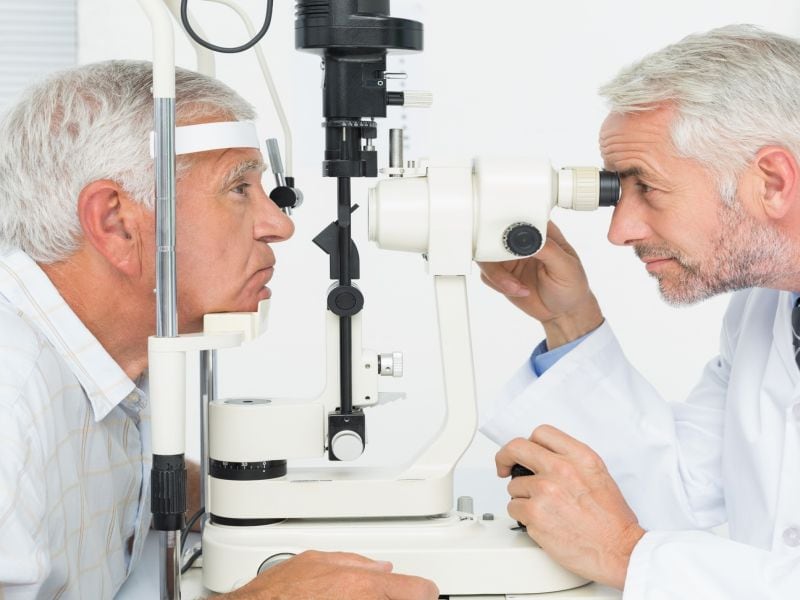Useful visual acuity preserved for about 20 percent of patients over their average remaining lifetime
MONDAY, Oct. 19, 2020 (HealthDay News) — For about 20 percent of patients with neovascular age-related macular degeneration (nAMD), useful visual acuity (VA) is preserved with anti-vascular endothelial growth factor (VEGF) treatment, according to a study published online Oct. 15 in JAMA Ophthalmology.
Robert P. Finger, M.D., Ph.D., from the University of Bonn in Germany, and colleagues conducted multistate modeling using real-world cohort data of 3,192 patients with nAMD treated in eye clinics in Australia, New Zealand, and Switzerland to examine VA outcomes of anti-VEGF treatment. Intravitreal anti-VEGF treatment was provided at the treating physician’s discretion.
The researchers found that an estimated 12 percent of the sample retained driving VA and an estimated 15 percent retained reading VA in at least one eye for the mean remaining lifetime of 11 years. An estimated 82 percent of the sample had dropped out at that time. Better long-term outcomes were seen in association with younger age at baseline and more injections during the first year of treatment.
“Anti-VEGF treatment preserves useful VA in almost 20 percent of patients for their average remaining life span,” the authors write. “Given the almost uniformly rapid progressive vision loss associated with the natural history of nAMD, this is a remarkable outcome for any chronic disease, underlining the public health necessity of providing anti-VEGF treatment to persons in need as early as possible.”
Several authors disclosed financial ties to the pharmaceutical industry.
Abstract/Full Text (subscription or payment may be required)
Copyright © 2020 HealthDay. All rights reserved.

